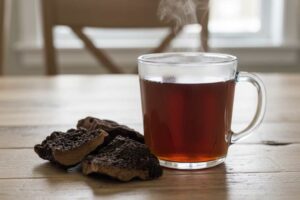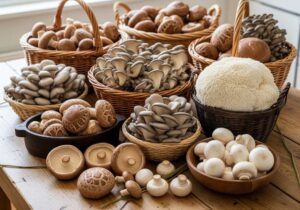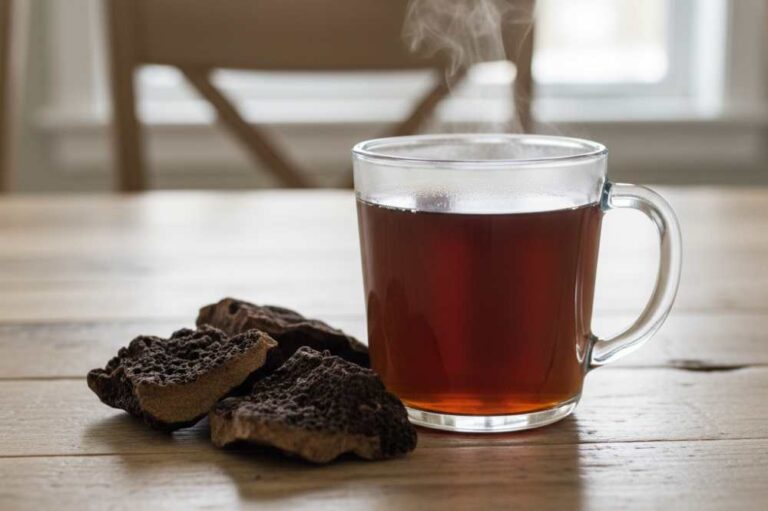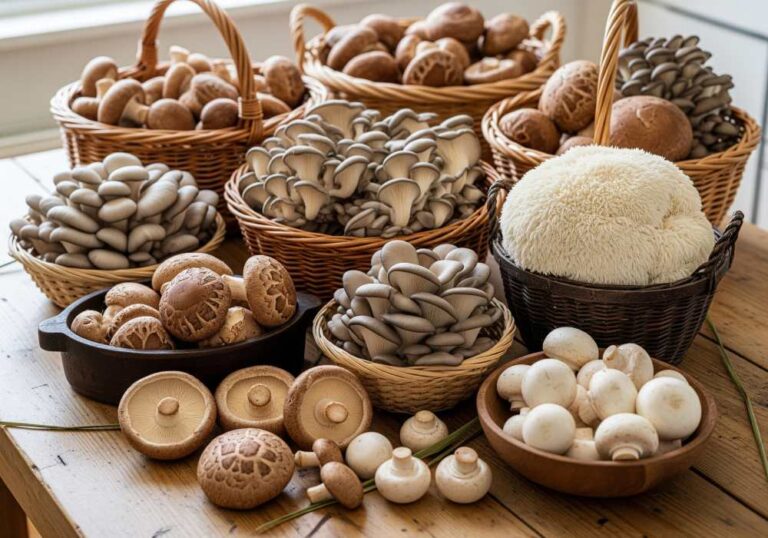I’ve been drinking coffee for years. Black coffee, lattes, cappuccinos – you name it, I’ve tried it.
So when mushroom coffee started popping up on my radar, I was intrigued. A healthier coffee alternative? Sign me up! But as a dental hygiene enthusiast (yes, I exist!), my first thought was: what about my teeth? Does mushroom coffee stain your teeth?
I did some digging, consulted with experts, and put my own teeth to the test. Here’s what I discovered about mushroom coffee and its potential to affect your smile.
Understanding Teeth Staining (The “Why”)
Ever wonder why coffee (or anything) can turn your pearly whites a little less pearly? It’s all about staining.
There are two main types, but we’re mostly concerned with the kind that happens from the outside – think of it like mud on a clean car. This is called extrinsic staining.
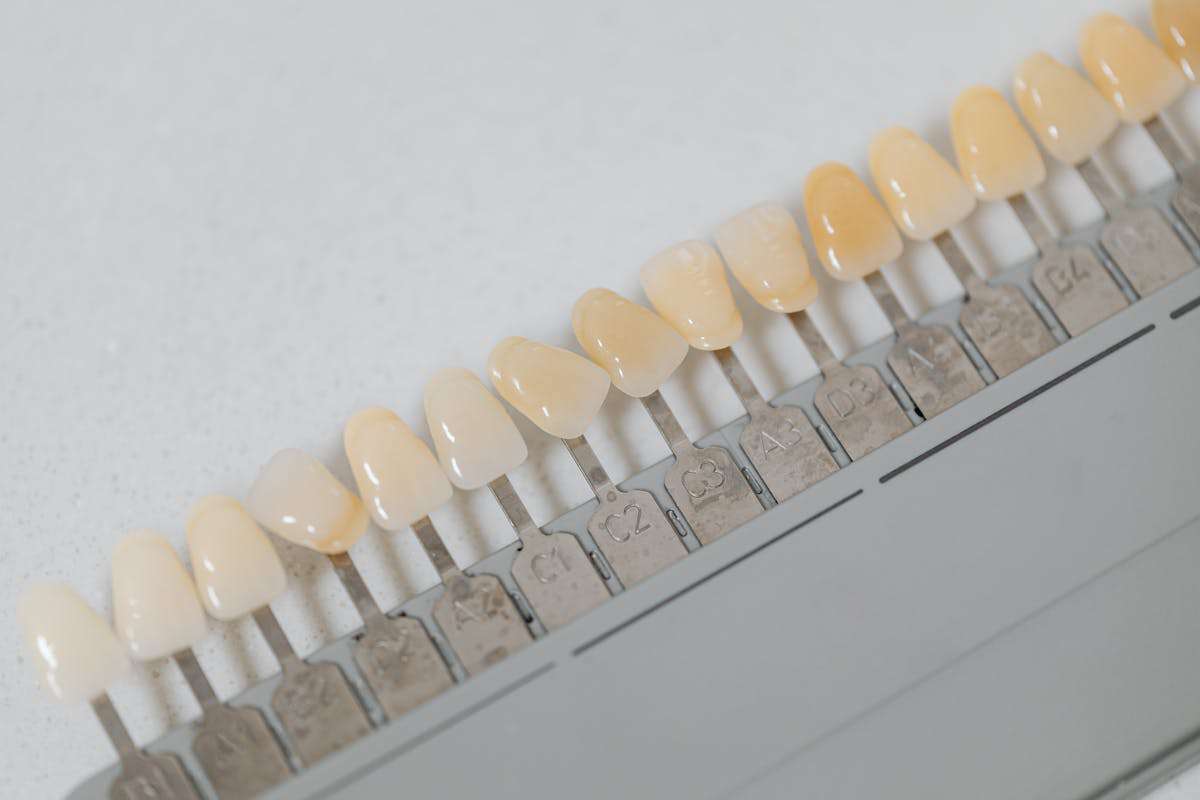
The other kind, intrinsic staining, is more like the car’s paint job fading over time – it’s deeper and usually not caused by what you eat or drink (more often things like certain medications or injuries). So, we’ll focus on the “mud” type.
What causes this “mud”? A few culprits are usually at play. First, we have chromogens. Think of these as the colorful compounds in coffee (and other things). They love to stick to your teeth. Then there are tannins. These are like the sticky glue that helps the chromogens latch on even tighter.
And finally, acidity plays a role. A slightly acidic environment can make your tooth enamel a little softer, making it easier for those chromogens and tannins to settle in.
Does Mushroom Coffee Stain Teeth?
Yes, mushroom coffee can stain teeth, but it’s generally less prone to staining than traditional coffee.
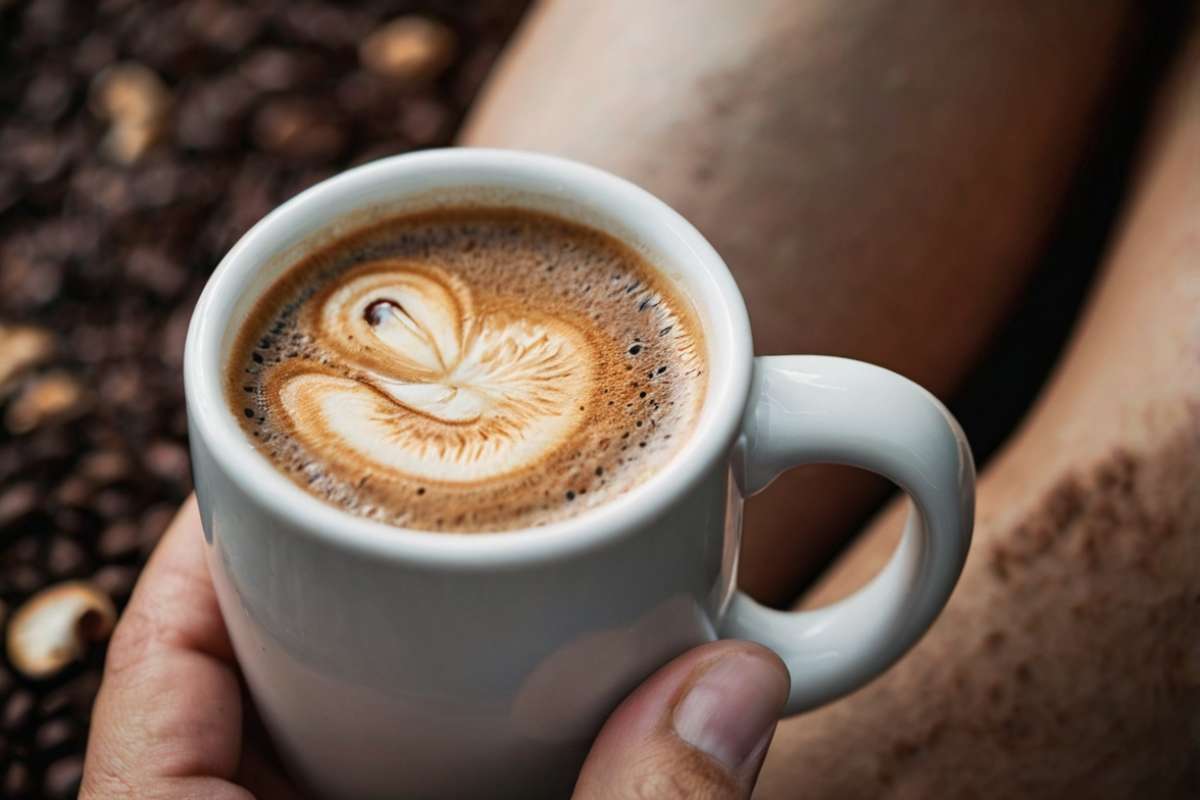
Mushroom coffee is often blended with mushrooms like chaga, lion’s mane, or reishi.
These mushrooms don’t contain the same deep-staining compounds as coffee beans, which means they contribute less to discoloration.
Another big factor is acidity. Mushroom coffee is typically lower in acidity, so it’s gentler on your teeth. This means fewer opportunities for pigments to settle in and cause yellowing.
Factors That Influence Teeth Staining (Even with Mushroom Coffee)
Research from the Journal of Research in Medical and Dental Science found that different types of coffee stain teeth at varying levels, with darker and more acidic varieties, like Turkish and espresso, being the worst offenders.
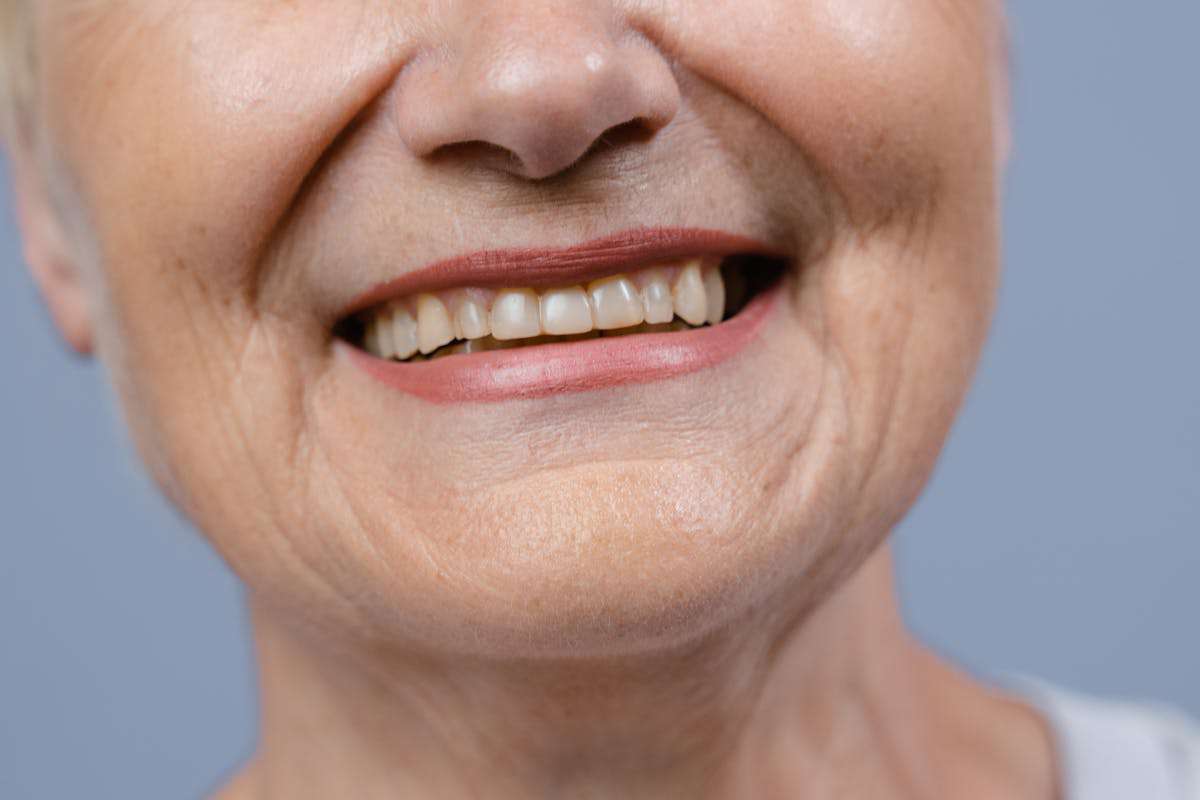
While there isn’t a direct study on mushroom coffee and its impact on teeth staining, we can piece together some clues. Mushroom coffee blends traditional coffee with medicinal mushroom extracts, often resulting in lower tannin levels.
Since tannins are a major contributor to staining, it’s possible that mushroom coffee could be a less damaging alternative for your pearly whites.
However, the staining part is still unaffected in the consideration of whether it’s a suitable choice for children.
How Often You Drink It
Drinking mushroom coffee once in a while is unlikely to cause noticeable stains. However, if you sip on it multiple times a day, the pigments—though lighter than regular coffee—can
gradually build up on your teeth. The more exposure, the greater the chance of staining.
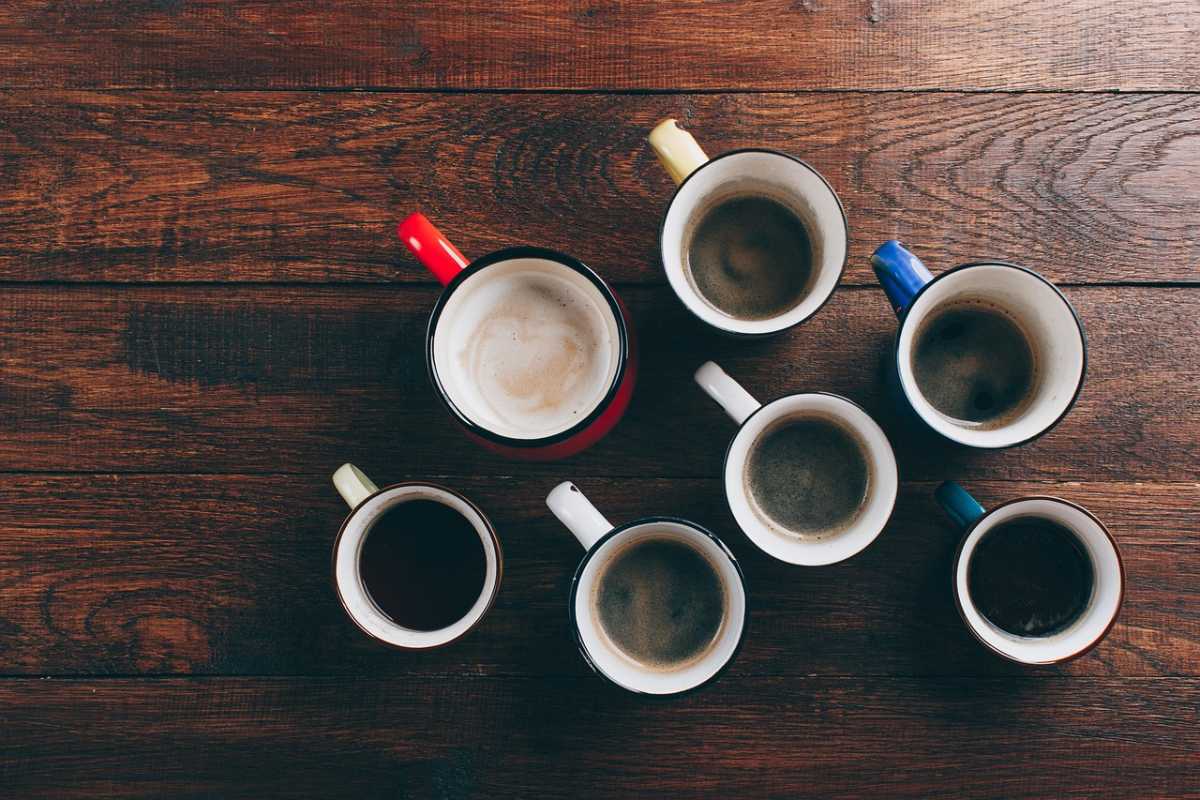
How Long It Stays on Your Teeth
Letting coffee sit in your mouth for too long increases the risk of discoloration. Slowly sipping your drink over an extended period allows even mild pigments to settle into the enamel. If you tend to nurse your coffee all morning, you are giving stains an open invitation.
What You Add to Your Coffee
According to a study in the Italian Journal of Food Science, the composition of coffee—including added ingredients—can influence how much it stains teeth, suggesting that the presence of mushroom extracts might alter its staining potential.
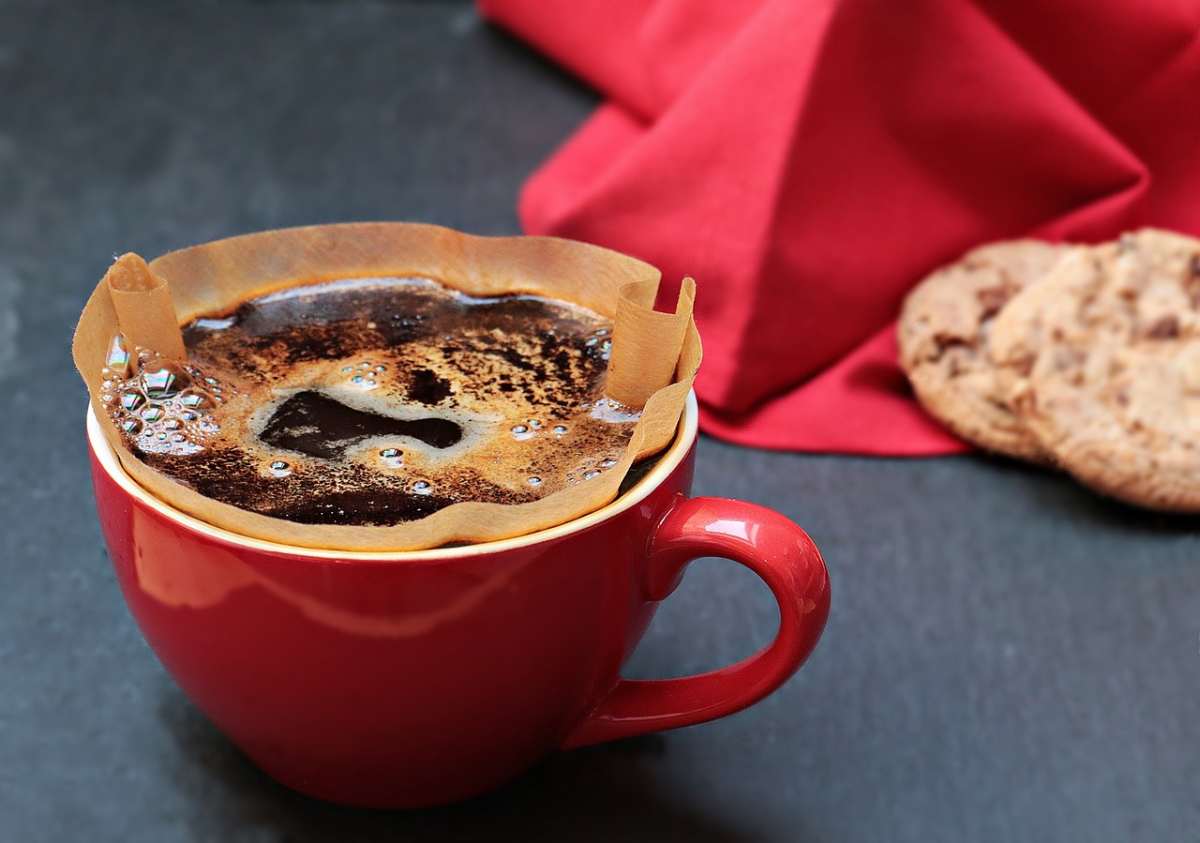
However, certain additives can make staining worse. Dark syrups, artificial sweeteners, and sugary creamers can leave behind sticky residues, making it easier for pigments to latch
onto your teeth.
Another study published in PubMed explores how dietary components influence enamel health, reinforcing the idea that what you consume alongside coffee matters just as much as the coffee itself.
Your Natural Enamel Strength
Some people are simply more prone to staining due to their enamel type. If your enamel is naturally thinner or slightly rough, stains can cling more easily, even with lower-acid drinks
like mushroom coffee. Genetics and age also play a role in how much staining you experience.
Does How You Brew Your Coffee Affect Staining?
A study published on ResearchGate examined how different brewing techniques impact staining. The researchers tested various methods, including espresso, drip coffee, and Turkish coffee, by immersing extracted teeth in each type of brew.
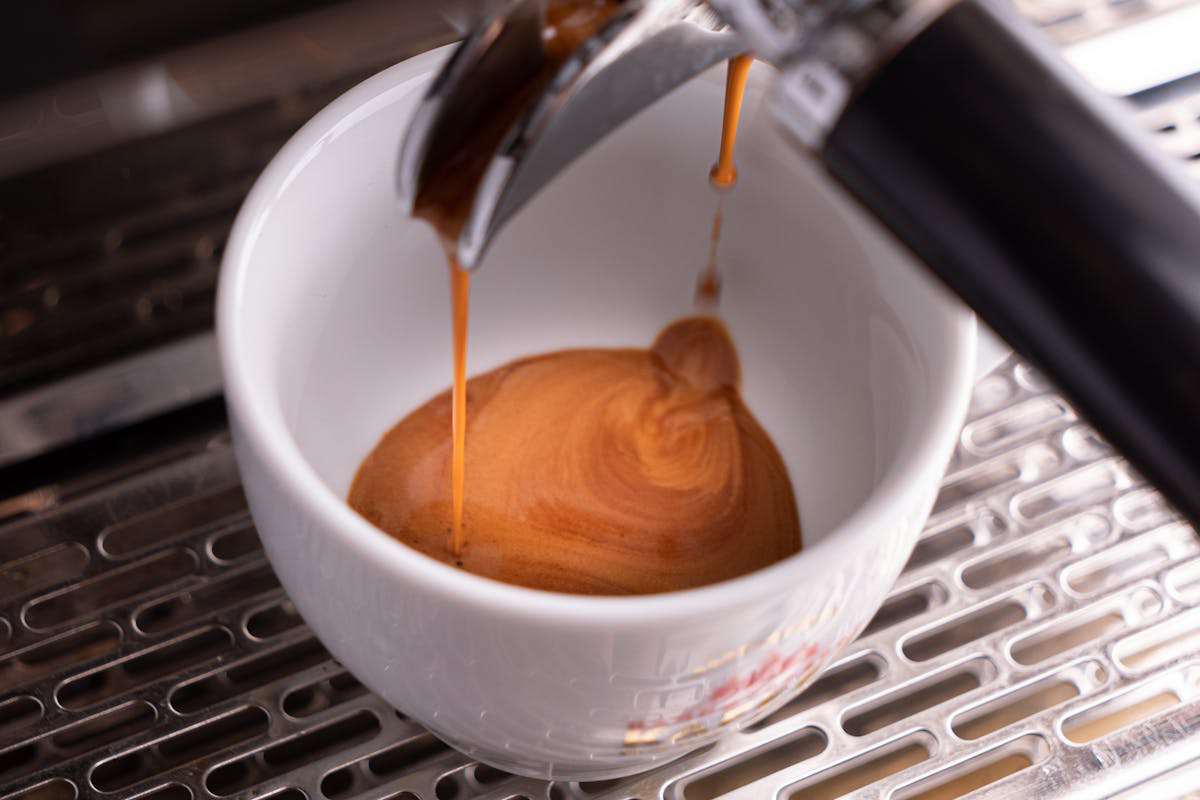
All coffee types caused noticeable discoloration, but the study found no significant difference between brewing methods—meaning that no matter how you make it, coffee still loves to leave its mark on your smile.
So, what does this mean for mushroom coffee? If it’s brewed like regular coffee, it likely carries the same staining potential, though its lower tannin content could give it a slight advantage. But if you’re hoping that switching from a French press to an espresso shot will save your teeth, think again.
How to Drink Mushroom Coffee Without Staining Your Teeth
Just because mushroom coffee is a gentler option doesn’t mean you should throw caution to the wind. If you want to enjoy it without worrying about stains, a few simple tricks can help keep your teeth looking fresh and bright.
Rinse or Brush After Drinking
One of the easiest ways to prevent stains is to rinse your mouth with water right after drinking. This helps wash away any leftover pigments before they settle in. If you have time, brushing your teeth about 30 minutes after drinking (to avoid brushing softened enamel) is even better.
Use a Straw
Yes, it might feel a little funny sipping coffee through a straw, but it works! Using a straw helps reduce direct contact between the coffee and your teeth, minimizing the chance of stains forming in the first place. Opt for a reusable straw to be eco-friendly.
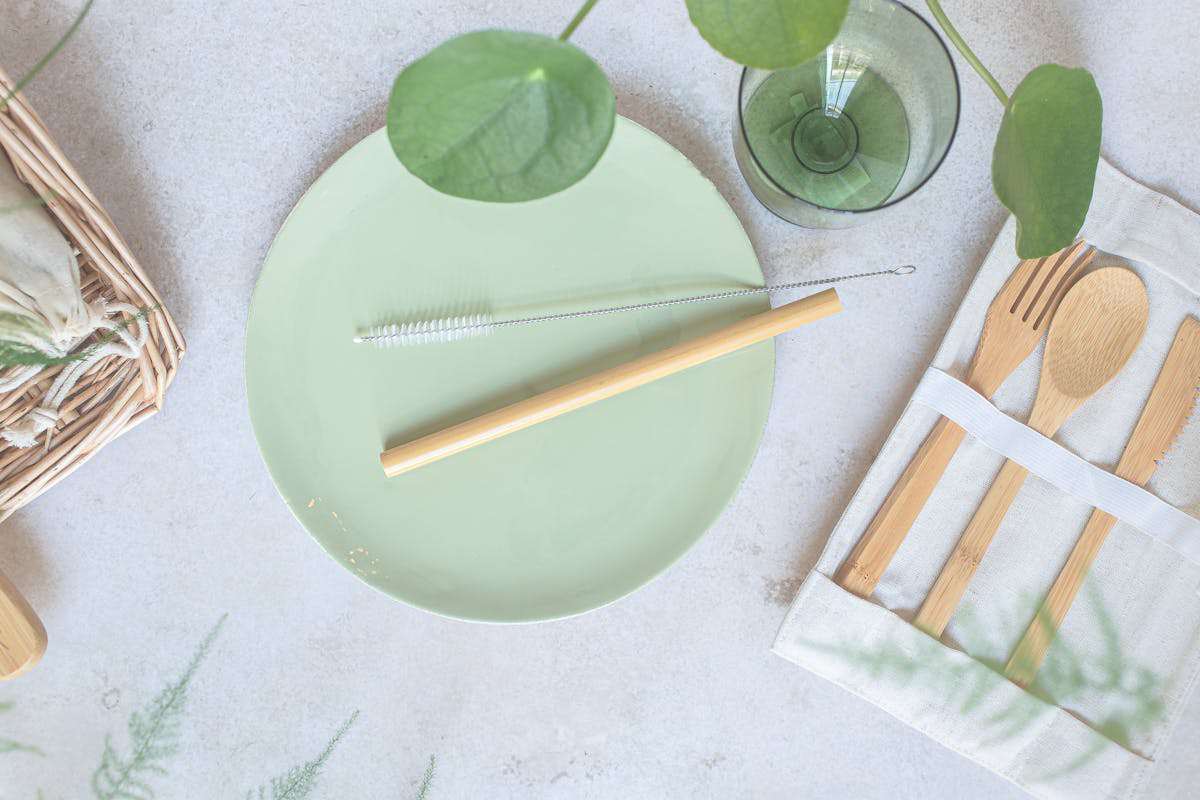
Avoid Dark Additives
Adding sugary syrups, caramel, or dark chocolate to your mushroom coffee can introduce new staining compounds. If you prefer a creamier taste, consider using milk, a plant-based alternative, or even cinnamon for flavor without the staining risk. But it’s best to avoid to avoid sugary syrups and artificial sweeteners especially during conditions like pregnancy
Drink It in One Sitting
Sipping coffee slowly throughout the day keeps your teeth exposed to potential stains for longer. If you drink your coffee in a reasonable time instead of nursing it for hours, there’s less opportunity for pigments to settle onto your enamel.
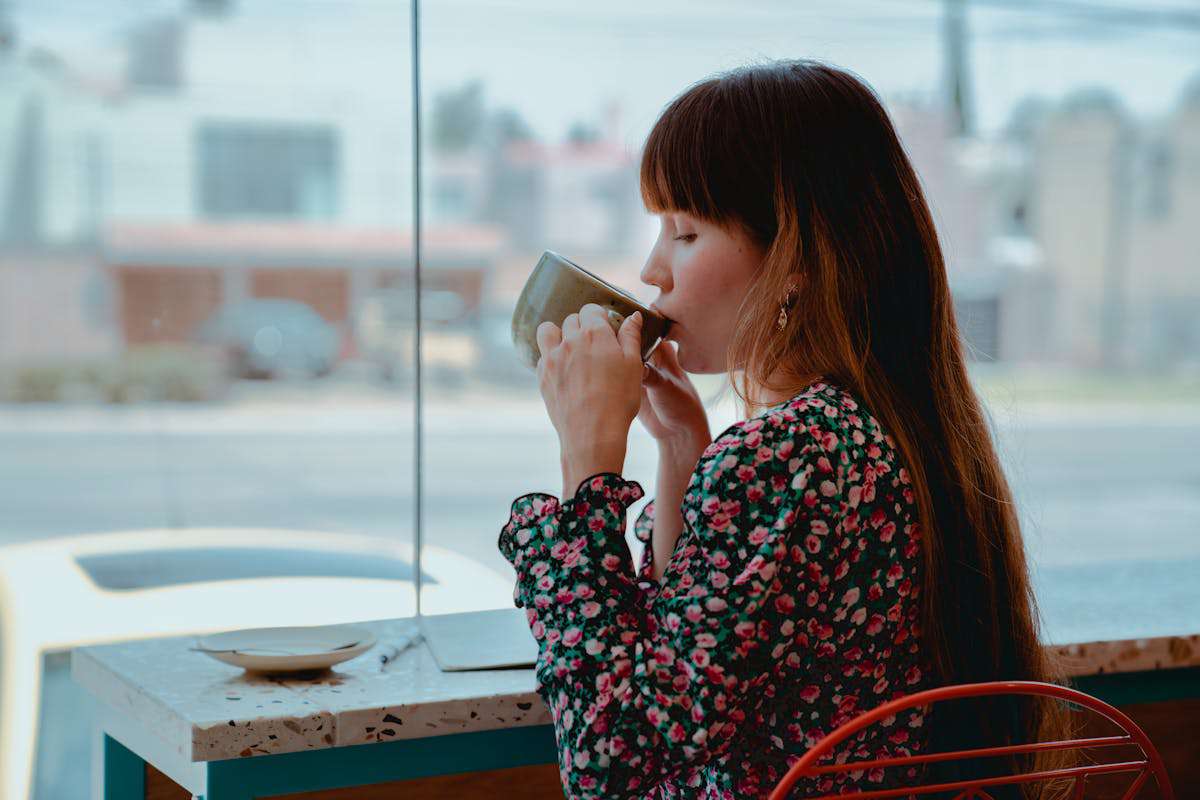
If you’re drinking mushroom coffee later in the day, choosing a caffeine-free version can make it a better option for nighttime relaxation.
Maintain a Good Oral Care Routine
Oral health experts highlight that certain foods can naturally counteract staining. Research from Save Our Bones; Nutritionist Vivan Goldschmidt lists crunchy fruits and vegetables like apples and celery as natural teeth cleaners that help scrub away stains before they set.
Brushing, flossing, and using a whitening toothpaste can go a long way in preventing any coffee-related discoloration. Regular dental cleanings also help remove stains before they become permanent.
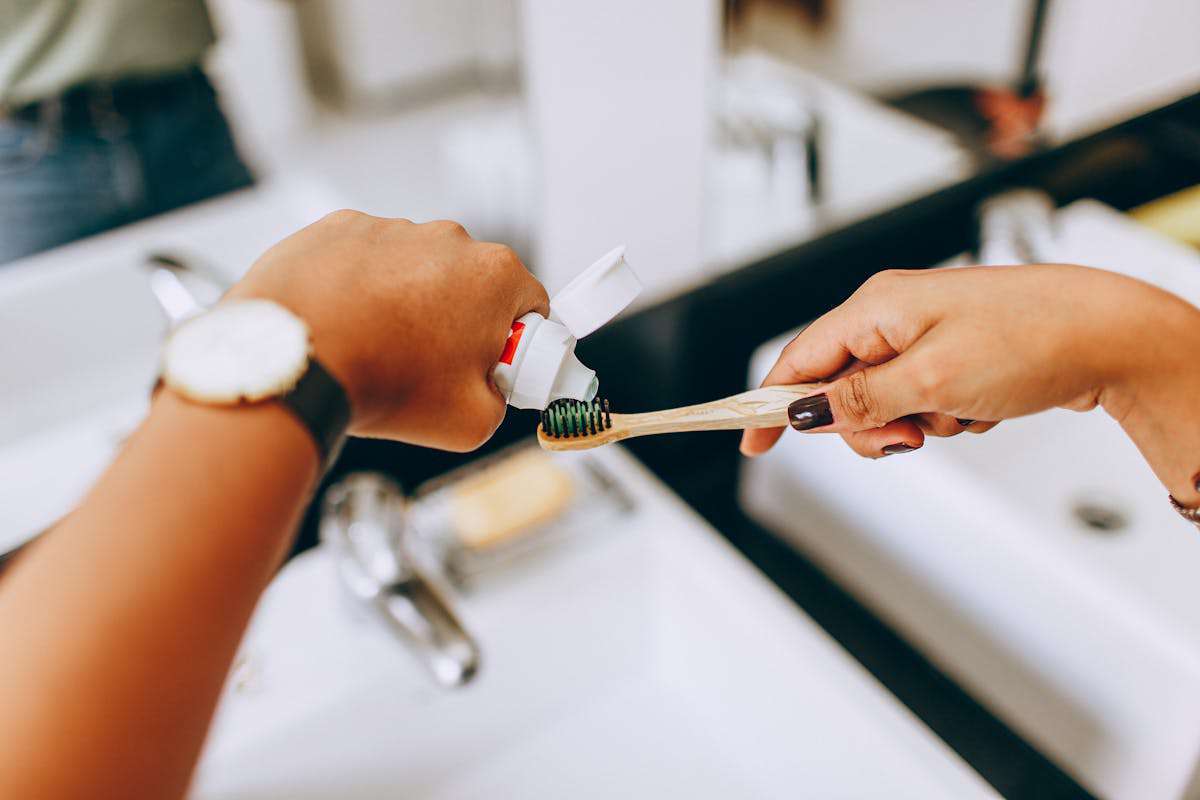
Long-Term Oral Health Benefits of Choosing Mushroom Coffee
Drinking mushroom coffee instead of regular coffee doesn’t just help with stains—it can also have long-term benefits for your teeth and gums. Here’s why:
Lower Acidity Protects Enamel
Regular coffee is acidic, which can wear down enamel over time, making teeth more vulnerable to stains and decay. Mushroom coffee is typically much lower in acidity, meaning it’s gentler on your enamel and helps maintain a stronger, healthier smile.
Less Sugar, Lower Cavity Risk
Many mushroom coffee blends are naturally mild in flavor, so they don’t require as much sugar or sweeteners to taste good. Less sugar means fewer bacteria in your mouth, reducing the risk of cavities and gum disease.
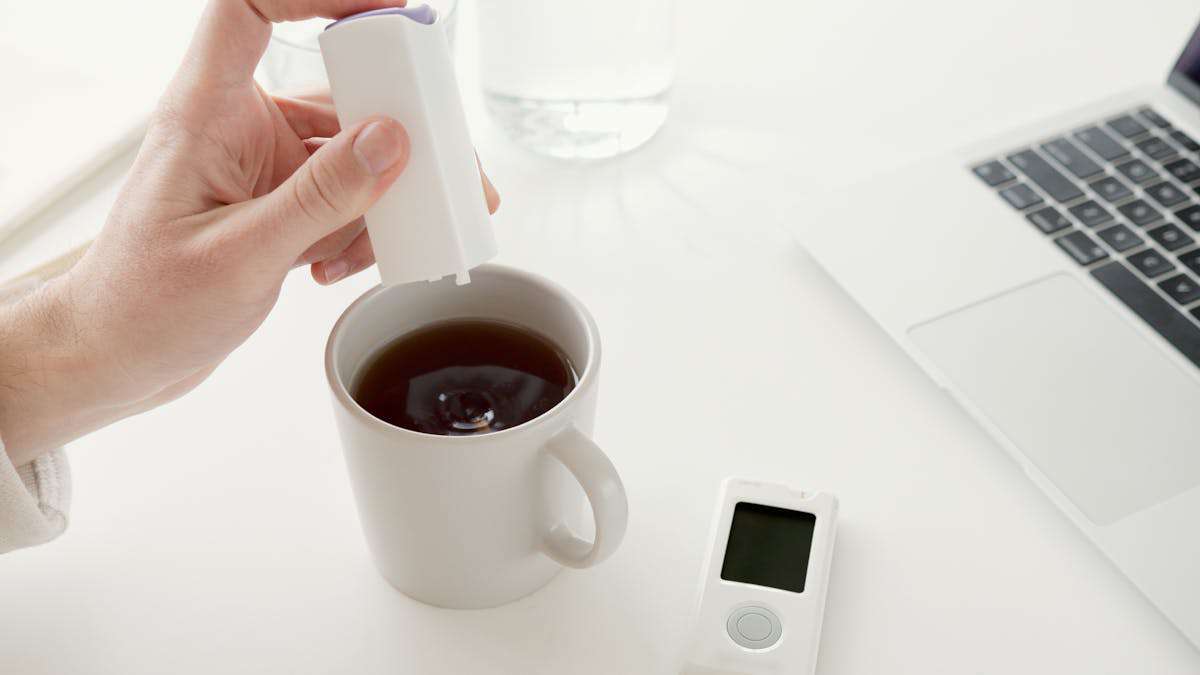
Potential Anti-Inflammatory Effects
Some mushrooms used in coffee—like chaga and reishi—contain anti-inflammatory and antibacterial properties. While more research is needed, these compounds may help support gum health and reduce the risk of oral infections.
Less Dry Mouth Compared to Regular Coffee
Traditional coffee can sometimes cause dry mouth, which reduces saliva production. We need saliva to wash away food particles and bacteria. Mushroom coffee is often less dehydrating, helping your mouth stay naturally clean.
Final Thought
Ultimately, the choice is yours. Mushroom coffee offers a compelling alternative to regular coffee. The staining risk can be managed. Don’t let the fear of staining prevent you from exploring the potential benefits of this fascinating beverage.



